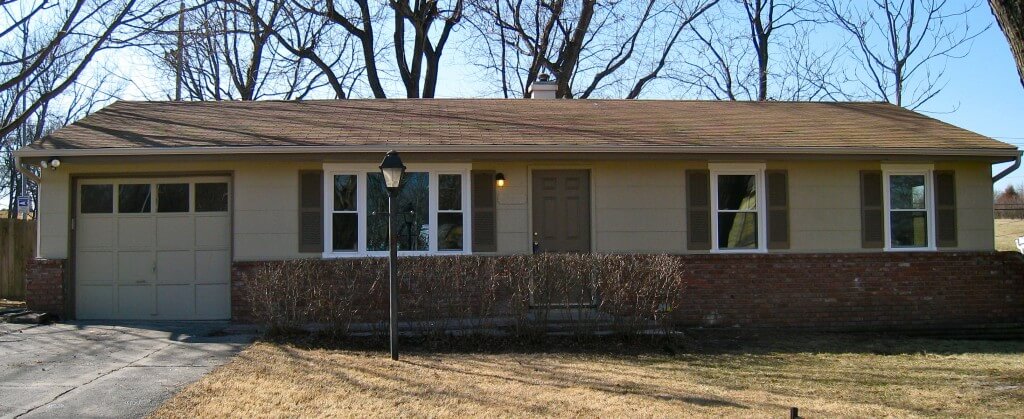 With our first solo real estate investment under our belts, this list could be ten or twenty or even one hundred items long. Of all the mistakes we made, however, here are the top five I wish we would have known before we began.
With our first solo real estate investment under our belts, this list could be ten or twenty or even one hundred items long. Of all the mistakes we made, however, here are the top five I wish we would have known before we began.
Be ye not so dumb.
Here we go, the top five ways you can royally mess up the success of your real estate investment:
1. Changing your mind about whether you are flipping the property, or holding and renting
If there was any one factor that affects your success with your investment, it’s knowing up front what your long-term plans are for the property.
Fixing up and quickly selling, versus fixing up, holding, and renting changes everything.
Insurance options and finance options will be very, very different.
Considerations into how much or how little you fix up the property can be different. As much as you care about the long-term quality of the home, if you’re not going to be the one who owns it and has to worry about it, your willingness to fix every, little thing the contractor finds might be limited.
We bought our house not knowing whether we wanted to rent it or flip it. After remodeling, we decided to flip, and we wasted three months of it sitting on the market before we hit ourselves upside the head and wondered what the heck we were doing.
We wanted long-term cashflow! Residual income!
Duh duh duh.
We could have been cashflow positive and on to our next property months earlier if we had just decided one way or the other up front. Also, our insurance and our financing would have been five times less complicated. Waaaay less complicated.
Ohh the admin. I might die of admin.
We would have done a bit more work to the structure of the home, things our contractor brought up that we decided not to fix. They might will come back to haunt us later.
Additionally, the location and characteristics of the house we bought were more suited towards renting. Something we didn’t really think about or pay attention to, again, because we hadn’t stinkin’ decided. It was on a busy corner – not appealing to buyers, not a problem for renters. It’s landscaping hadn’t been taken care of in years – not appealing to buyers, not a problem for renters.
The list goes on and on.
Either way, the entire process would have gone much smoother if we had just made up our minds from the get go.
2. Not researching comparable properties in the area
We did not research comps in the neighborhood of our property because we’re dumb. And not smart. And kinda stupid. And really don’t have a whole lot of intelligence.
We lucked out, though.
But it could have been ugly. Really, really ugly.
Before you purchase, run comps. If you’re going to flip, run comps on homes as similar to yours as possible in the immediate neighborhood. Look at what is listed for sale right now – most easily done by searching on the consumer side of the biggest real estate broker website in your local area. This can also be accomplished by simply driving the neighborhood and grabbing fliers or calling the numbers listed on the sign. Get specifics. How many beds, how many baths, how many garage stalls, and how recently it has been updated are the most important. What are they listed for? How much?
If you have a realtor you’ve worked with, or you happen to be one, look-up and use any comps that have sold within the last 30 days. Use those numbers too.
Let me say this again, use comps that have sold within the last 30 days. In today’s market (or any market, really), what an identical house to yours sold for 9 or 12 or 18 months ago doesn’t mean crap. Don’t let an inticing number convince you otherwise.
If you’re going to hold and rent the property, get comps on rent values in the area. There are two good resources for this. One, driving the neighborhood and making sign calls. Two, CraigsList.
CraigsList is the best place for rental information (and where many of your possible tenants will go to look for places, by the way). Period.
Run a bundle of searches. Dig around. Sneak a peak at pricing. Pretend you’re a potential renter and make a few calls to inquire about the property, if you have to.
You want rent values that landlord’s are asking for right now. Not six months ago, not a year ago. Today.
I’m not going to get into how, if you do not do your research on comparables, it can mess things up. I think it’s probably self-explanatory. If you’re way off, your numbers are off, and you might be out a boatload of money.
Do your research before offering on the home.
Do your research before OFFERING TO EVER EVER PURCHASE the home.
We did not do our research beforehand, and went through several days of pulling our hair out before we finished our research and realized that we might be on target. As I mentioned, we took a humongous gamble doing what we did. We will not be as stupid with our investment next time.
And by the way, don’t pretend that you “know” the neighborhood. “Ohh, I’m pretty sure rents in this area can’t be any less than $850!” This is a serious investment you’re making, this is business.
Know for sure. Run the numbers. Save yourself from a possible financial collapse. Thank you and amen.
3. Collecting contractor bids on the work to be done after you already own the home.
Oh geez, did this one kill us.
Let’s just say that we purchased the property, then interviewed contractors, then took bids, then freaked out.
The bids were more than twice what we (with all of our brilliant, professional estimating skills) thought. We were able to swing it, but barely.
Do not as we did, my friends. Do not as we did.
Bring in contractors before offering on the home.
Bring in contractors before OFFERING TO EVER EVER PURCHASE the home.
(There seems to be a theme happening here.)
Think you can’t bring in a contractor before you own it? You can.
Call the contractors you would like to interview, inform them you are considering placing an offer on the property, set-up a time to walk through the house together. Arrange things with your buyer’s agent, who will arrange things with the seller’s agent, and set-up a time you can all walk through the house.
Wait until the contractor(s) get back to you, review the bids, run your numbers, and THEN determine if it’s a good investment to go forward with this property…and THEN place your offer to purchase.
Comprende?
Sweet.
Do it.
4. Settling
We got a pretty great house, investment-wise, but even now we know it could have been better.
There is a fine line between deciding what you want – and more importantly, what you DON’T want – and not sticking to your guns until you find it, and simply never taking action because you can’t find the “perfect” property.
You have to take action eventually. But don’t settle. If it’s not in your budget, if it’s not quite right, don’t get wrapped up in it.
I promise – I promise promise promise – that there will be others out there that better fit your qualifications.
Listen to your gut. If it doesn’t feel quite right, be careful not to logic yourself into it. Or vice versa.
5. Not having a financial cushion
You are not smarter than everyone else.
I mean, I know you are.
But you’re not.
You are not going to avoid every, single problem because you’ve done all of the smartypants research that you’ve done.
You are only going to be prepared up to a point.
And you are going to run into things that you need to pay for that you didn’t think about.
You will you will you will.
We did. Everyone I’ve ever talked to about real estate has, too.
It’s going to be several months, maybe a good part of a year, before you’re cashflow positive via rental income or selling the property. Make sure you have enough we-can-use-this-if-we-absolutely-have-to cash on hand (credit cards don’t count) to cover you for twice as long as you expect everything to take.
Yup, twice.
You’ll thank me later.
———
1. Decide whether you want to fix-up and flip or hold and rent, and stick to it
2. Research comparable properties before offering on the property
3. Know exactly how much it will cost to update/remodel the property before offering
4. Don’t settle
5. Cushion yourself financially
Ahh, a smarter investor you will be.
Correction: A richer investor you will be.
 I'm an author, marketer, and mommy who loves to read, write, and drink coffee. My husband and I live in suburban Kansas City with our two little girls. This site chronicles my world. Thanks for stopping by!
For more, check out my
I'm an author, marketer, and mommy who loves to read, write, and drink coffee. My husband and I live in suburban Kansas City with our two little girls. This site chronicles my world. Thanks for stopping by!
For more, check out my 
